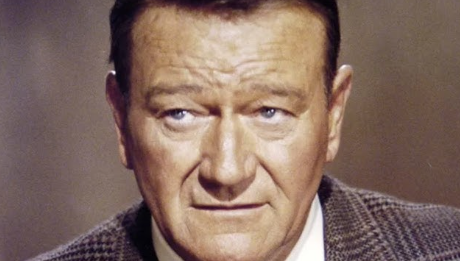John Wayne, also known as “The Duke,” remains one of Hollywood’s most iconic figures. His rugged persona, deeply tied to the American cowboy image, made him a staple of Western films for decades. With a career spanning over 50 years, Wayne became synonymous with bravery, leadership, and patriotism, earning a devoted fan base that transcended generations. But beyond his on-screen fame, John Wayne also built a significant fortune during his lifetime.
When you think about John Wayne’s legacy, one might wonder: what was his net worth at the time of his death? After all, his fame didn’t just stem from his acting career; it extended into various business ventures that helped cement his financial success. Let’s explore the financial side of his life and uncover how much he was worth at his passing.
John Wayne’s Early Life and Career
John Wayne, born Marion Robert Morrison in 1907, was raised in a modest family. His early years were spent in Iowa before his family moved to California, where he eventually pursued acting. Wayne initially worked in minor roles, but his breakthrough came when he was cast in the film The Big Trail in 1930. This marked the start of his rise to fame.
Throughout the 1930s and 1940s, Wayne’s popularity skyrocketed with a series of successful Westerns. His portrayal of a tough, no-nonsense hero resonated with audiences, especially during and after World War II, when Americans were seeking figures of strength and resilience. Movies like Stagecoach (1939) and Red River (1948) cemented his status as a leading man in Hollywood.
But John Wayne wasn’t just an actor; he was also a savvy businessman. He invested in real estate and co-founded a production company, Batjac Productions, which gave him control over many of his films. This entrepreneurial spirit would play a significant role in boosting his wealth.
The Financial Success of John Wayne
By the 1950s, John Wayne had become one of the highest-paid actors in Hollywood, earning millions from his films. However, his financial success didn’t solely come from acting. Wayne was smart about diversifying his income streams. He had stakes in several profitable ventures, including his own production company, Batjac Productions. Through Batjac, Wayne produced many of his films, ensuring he received a significant portion of the profits.
Additionally, Wayne made sound investments in real estate. His properties, especially those in Southern California, grew significantly in value over time. He also earned money from licensing deals, which allowed his name and image to appear on various products like clothes, toys, and even cigarette brands.
Beyond his film earnings, Wayne’s business acumen and savvy investments played a crucial role in building his wealth. By the time of his death, his estate was worth millions, thanks to these lucrative ventures.
John Wayne’s Net Worth at Death
When John Wayne passed away in 1979, his estimated net worth was around $6 million. While this figure might seem modest compared to today’s Hollywood stars, it’s important to factor in inflation. Adjusted for inflation, $6 million in 1979 would be roughly equivalent to $23 million in today’s dollars.
At the time of his death, Wayne had also amassed substantial real estate holdings, including ranches and commercial properties, which contributed significantly to his overall wealth. His estate was managed by his family and business associates, and it continued to generate income even after his passing. The Duke’s financial legacy was substantial, and his name lived on in the forms of royalties and licensing deals from his films.
How John Wayne’s Legacy Still Affects His Net Worth
Despite his death, John Wayne’s net worth didn’t fade away. His films continue to be popular and are still frequently broadcast on television and sold through various media platforms. Every time True Grit or The Searchers airs, Wayne’s estate earns royalties, keeping his financial legacy alive.
Moreover, his name is still highly marketable. John Wayne-branded merchandise, ranging from clothing to home décor, continues to generate revenue. Collectors of Western memorabilia pay top dollar for items associated with The Duke. These enduring posthumous earnings have only added to the value of his estate.
Wayne’s children and estate managers have worked to protect and grow his financial legacy. The John Wayne Cancer Foundation, founded by his family, also plays a role in keeping his name in the public eye while raising funds for cancer research. His influence continues to live on, not just in the film industry, but also in the ongoing commercial success of his brand.
Frequently Asked Questions (FAQ)
What was John Wayne’s most successful movie financially?
Wayne’s most financially successful movie was True Grit (1969), for which he won his only Academy Award. The film grossed over $14 million in the U.S. box office, a huge sum at the time.
Did John Wayne leave an estate after his death?
Yes, John Wayne left behind an estate that included real estate holdings, his production company, and various assets that continued to generate income for his family after his death.
How did John Wayne’s lifestyle affect his finances?
Wayne lived a comfortable lifestyle, but he was also quite frugal with his finances. He invested wisely in real estate and business ventures, which allowed him to maintain his wealth throughout his life.
Was John Wayne ever involved in any financial controversies?
While there were occasional rumors about Wayne’s financial practices, there were no major scandals that significantly impacted his wealth or reputation. His business acumen largely shielded him from controversy.
Wrapping Up
John Wayne was not only an iconic Hollywood actor but also a successful businessman who carefully managed his wealth. His estimated net worth at death, adjusted for inflation, remains a testament to his lasting influence both in the film industry and in financial circles. Even decades after his passing, Wayne’s estate continues to thrive, proving that The Duke’s legacy is not just measured in his films but also in the enduring financial success he built during his lifetime.

